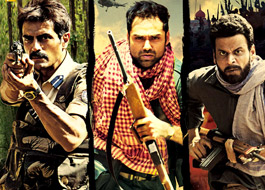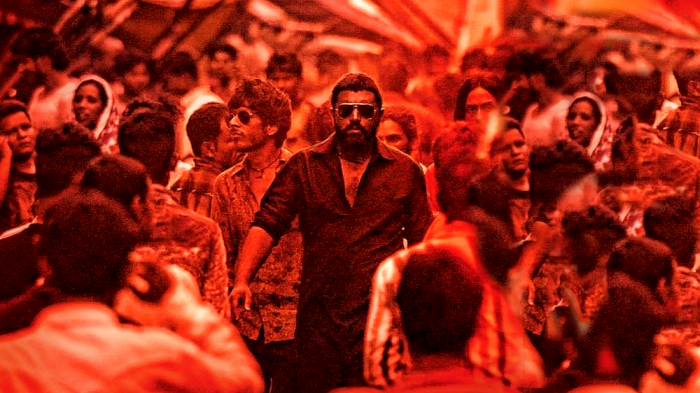
Trust Prakash Jha's cinema to constantly raise provocative political issues and instigate the censor board into ordering substantial cuts. We've come to know from very reliable sources that Prakash's Chakravyuh has been ordered six cuts, most of them verbal.
The film has been passed with a 'UA' certificate,which means underage viewers can watch the film accompanied by an adult.
Informs our source from the Censor Board of Film Certification (CBFC), "There were direct references to politicians, political scandals and a specially pointed reference to 'Sardari' (meaning leadership as well as a reference to the Sikh community whose individuals are known as Sardars) which we thought was a direct hit at the Prime Minister. Those had to go."
One sentence that has been removed from the film refers to the Mahatama. Says our source, "A character says, 'Majboori ka naam Mahatma Gandhi'. Now this may be a commonly used phrase of despair in everyday life. But we can't have Mahatma Gandhi equated with majboori (helplessness) on a medium as powerful as cinema. So we asked the phrase to be removed."
Elsewhere a character is accused of getting his job through 'quota' (reservation) and hence inept at his work. That has been cut. Also cut by the censors is a reference to the allegedly underhand activities of a fictional 'Mahanta' group of industries based in London.
Says our source at the CBFC, "From the pointers and references including the London location it was clear that the 'Mahanta' group referred to the Vedanta group of industries. We had to ask for that to be cut. That apart we asked a couple of abuses to be deleted. Then there was a scene of visual violence where a man's ear is chopped off and displayed on screen. We've asked the ear to be blurred on screen."
But it's the 'Mehngaai' song in Chakravyuh that has raised the censorboard's hackle the most. While the disclaimer for the number has gotten it past the censorboard, it was the deletion of one line making a barbed and unmistakable reference to a 'Sardar' that actually got the song past censors.
Says our censorial source, "The song sneered, 'Bahut dekhi teri sardari.' That, we felt was a direct hint at the Prime Minister. It had to go. Our guidelines clearly state dialogue or scene cannot caste aspersions on individuals, least of all the person holding the highest political post."
Referring to Prakash Jha's defence about using the 'Tata, Birla' names as metaphors in the song the source from the CBFC says, "Metaphors are a wonderful tool for expression . But they can't be used on a public platform in a negative way. Years ago Manoj Kumar's Roti Kapada Aur Makaan had a beautiful 'Mehngaai' song. It didn't have to name any politician or cast aspersions on any individual to prove how inflation has hit the common man."
J.P. Singh, the CBFC's Regional Officer Mumbai, confirmed the above cuts.






Comments
Add new comment